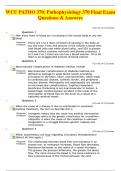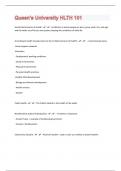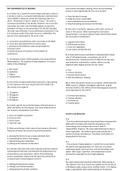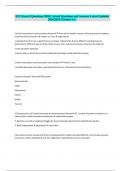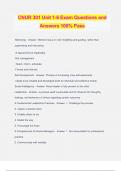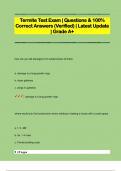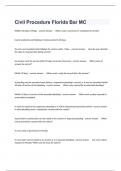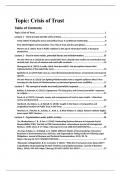Exam (elaborations)
WCU PATHO 370: Pathophysiology 370 Final Exam - Questions and Answers Elaborations A+
- Course
- Institution
WCU PATHO 370: Pathophysiology 370 Final Exam - Questions and Answers Elaborations West Coast University PATHO 370: Pathophysiology 370 Final Exam - Questions and Answers Elaborations Question 1 0.25 out of 0.25 points How many liters of blood are circulating in the human body at any one time? Res...
[Show more]
